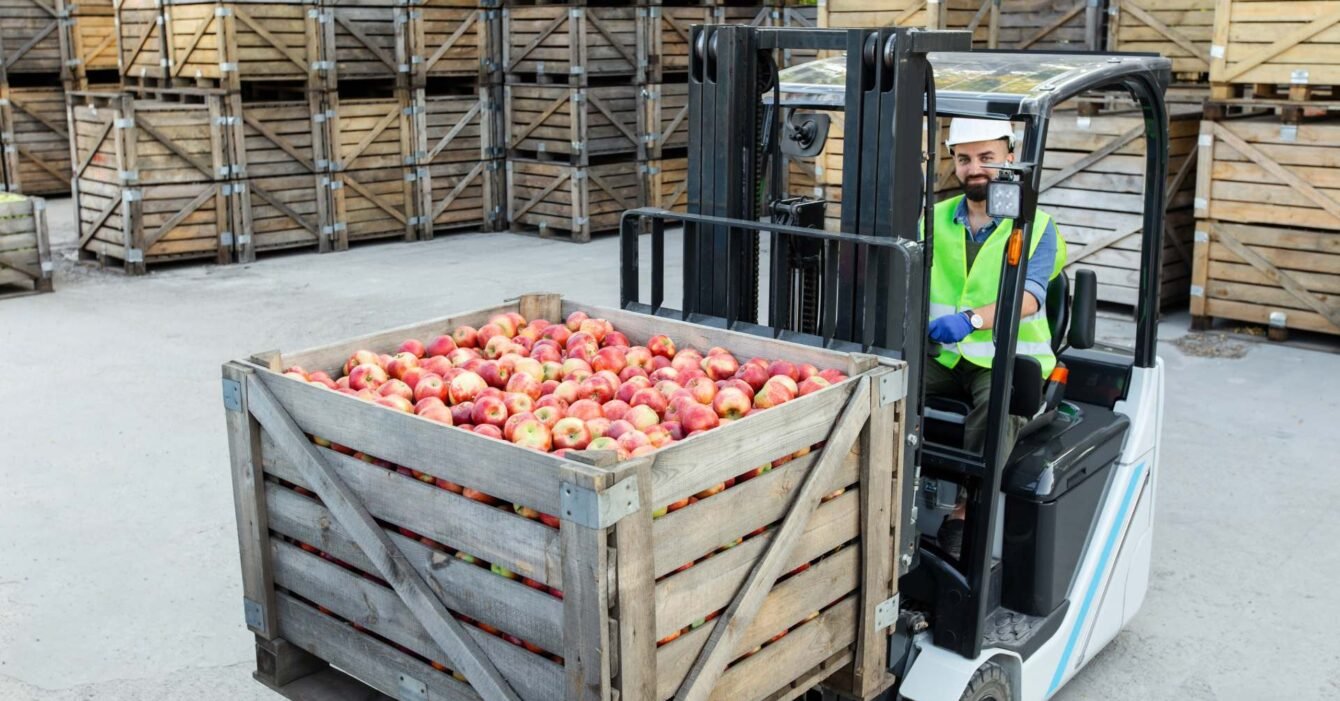In the Middle East, where temperatures often exceed 40°C, maintaining the quality and safety of perishable FMCG (Fast-Moving Consumer Goods) goods is a significant challenge. Cold chain logistics systems have become indispensable for managing the storage and transportation of temperature-sensitive products like dairy, fruits, vegetables, and pharmaceuticals. The efficiency of these systems directly impacts product quality and shelf life, making it crucial for businesses to implement reliable cold chain solutions. This article explores the importance of cold chain logistics systems in the Middle East and the innovative solutions being used to maintain product integrity in extreme climates.
The Importance of Cold Chain Logistics Systems
- Preserving Product Quality
Cold chain logistics systems ensure that perishable goods are stored and transported within a controlled temperature range, which is critical to preserving their quality. Without proper temperature management, products can spoil or lose their nutritional value, leading to wastage and financial losses. In the Middle East’s scorching climate, the stakes are even higher, as heat can rapidly degrade product quality if not managed effectively. - Ensuring Food Safety
Food safety is a major concern in the Middle East’s FMCG sector, particularly for items like dairy, seafood, and meat. Cold chain logistics systems help maintain the safety and freshness of these products by keeping them at regulated temperatures from the point of production to the end consumer. If the cold chain is disrupted, even for a short period, it can lead to bacterial growth and contamination, posing a serious health risk to consumers. - Reducing Wastage
Perishable FMCG goods are prone to high levels of wastage due to their limited shelf life. In the Middle East, where logistics networks often span large geographical distances, cold chain logistics systems play a crucial role in minimizing spoilage. These systems ensure that products are delivered quickly and efficiently while maintaining optimal temperatures throughout the supply chain. - Meeting Regulatory Requirements
In many Middle Eastern countries, there are stringent regulations governing the storage and transport of perishable goods. Cold chain logistics systems not only help companies comply with these regulations but also enhance their reputation for maintaining high standards of food safety and quality. Non-compliance can lead to fines, legal issues, or product recalls, all of which can be detrimental to a company’s bottom line.
Solutions for Maintaining Product Quality in Extreme Climates
- Temperature Monitoring and Control
Advanced temperature monitoring technologies, such as IoT-enabled sensors and real-time tracking systems, have revolutionized cold chain logistics. These tools provide real-time data on the temperature and humidity levels within transport vehicles and storage facilities, ensuring immediate corrective action in case of any fluctuations. In extreme climates, such technology is essential for preventing temperature deviations that could compromise product quality. - Insulated Packaging Solutions
Insulated packaging is another effective solution for maintaining product integrity during transportation. Packaging materials with high thermal resistance can protect products from external temperature fluctuations, ensuring that they remain within the required temperature range throughout the journey. This is particularly important for last-mile delivery, where goods are often exposed to extreme outdoor temperatures in the Middle East. - Refrigerated Transportation Fleets
Investing in a fleet of refrigerated trucks equipped with state-of-the-art cooling systems is essential for companies operating in the Middle East’s FMCG sector. These vehicles are designed to maintain a consistent temperature during long-distance transport, ensuring that perishable goods arrive at their destination in optimal condition. In extreme climates, regular maintenance of these vehicles is also crucial to avoid equipment breakdowns that could disrupt the cold chain. - Cold Storage Facilities
In addition to refrigerated transportation, companies need to invest in high-quality cold storage facilities. These facilities act as temperature-controlled environments for the safe storage of perishable goods before distribution. Modern cold storage solutions are equipped with energy-efficient cooling systems and backup power supplies, ensuring uninterrupted operations even in the event of power outages or equipment failures.




